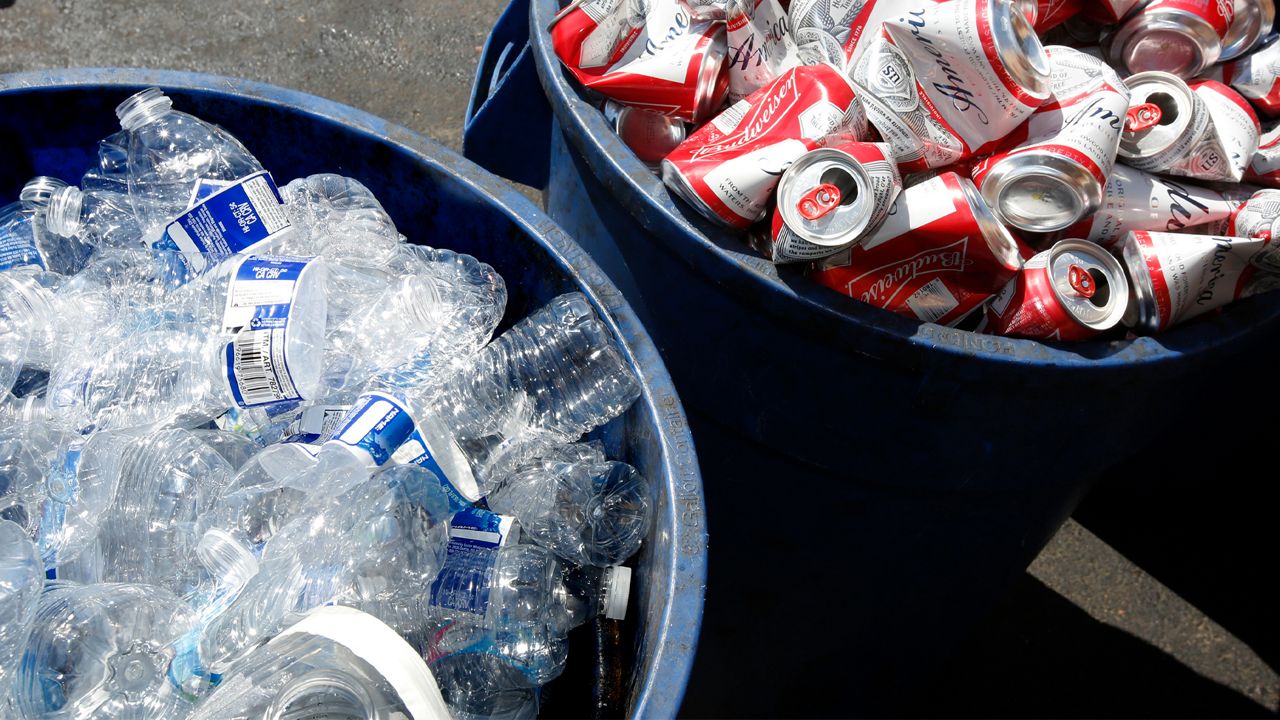It’s an open secret in the waste management world that many products marked with a recycling symbol are not, in fact, recyclable. In California, less than 15% of single-use plastic is recaptured, let alone transformed into something else, yet consumers continue to toss anything marked with the chasing-arrows recycling symbol into their blue bins.
Now California lawmakers are attempting to combat manufacturers’ so-called "greenwashing" with a bill that requires truth in labeling for recyclable materials. SB 343 would prohibit the use of the term “recyclable” on products that are not and prohibit manufacturers from using the chasing-arrows symbol on such items.
“It’s already illegal to label an item ‘recyclable’ when it’s really not,” said SB 343 author State Senator Ben Allen, D-Santa Monica. “So manufacturers shouldn’t be able to put the recycling symbol on items that aren’t actually recyclable in the real world. By forcing truth in labeling, SB 343 will reduce contamination in the recycling stream and improve the sorting process, thereby saving cities and ratepayers money while empowering consumers to make more informed decisions.”
On Wednesday, SB 343, also known as the Truth in Labeling for Recyclable Materials bill, passed an Assembly floor vote 50 to 3. It now heads to a concurrence vote in the Senate Thursday, before being sent to Gov. Gavin Newsom’s desk for a signature.
The amount of waste Americans generate each year is increasing, yet the amount of that waste that is recycled continues to drop, according to the U.S. Environment Protection Agency. In 2018, Americans generated 292.4 million tons of waste, 32% of which was either composted or recycled.
Recycling rates, however, vary by material type. Just 27% of glass, 16% of paper packaging and 9% of plastics are recycled, according to the EPA.
All municipal recycling systems in the United States have been negatively affected by the so-called National Sword policy China enacted in January 2018, which banned the import of almost all plastics and other recyclable materials from foreign countries. Still, many waste utilities continue to accept plastics 3, 4, 6, and 7 in their recycling bins even though they no longer have a market and are, for the most part, being landfilled.
A 2018 study from the state’s recycling agency found that plastic bags, films and wraps were the largest types of contamination in curbside recycling bins, despite accounting for just 12% of the waste stream. Such thin-film plastics clog recycling machinery and also contaminate the paper and cardboard that are often found together in mixed recycling systems.
The goal of SB 343 is to clarify what is, in fact, recyclable to reduce contamination in the state’s recycling system so consumers can make better choices about which bins to use when disposing of their waste.
A recent report from the Statewide Commission on Recycling Markets and Curbside Recycling found that consumers often interpret the "recycle" word and symbol as being accepted in curbside recycling, even when their true recyclability is low or non-existent.



